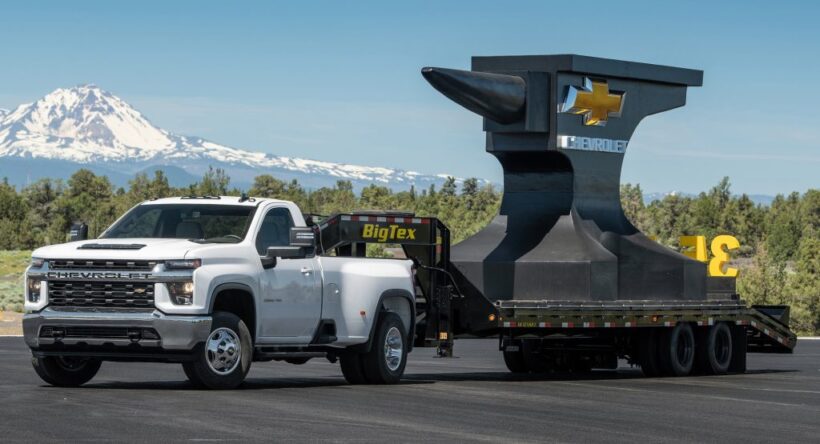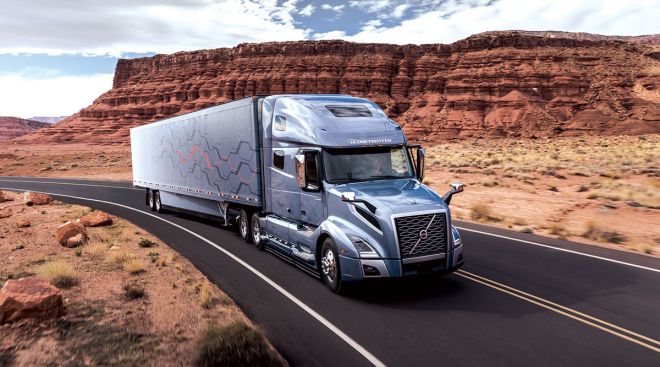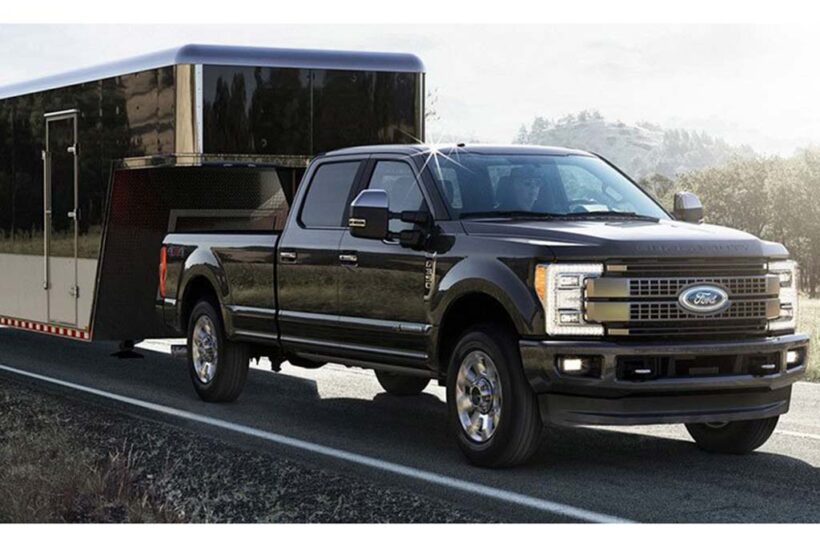Trucks come in various shapes and sizes depending on how much weight they can haul and their uses. Heavy-duty trucks have great commercial significance as they are used for a wide range of transportation purposes.
Heavy-duty trucks are one of the most commonly used vehicles for long-distance transportation. If you are looking to learn more about heavy-duty trucks, read this article to know their features, uses, and other aspects in detail. So, let’s get revving!
What are Heavy Duty Trucks?

Heavy-duty trucks are large, strong, heavy-duty vehicles made specifically for the transportation of heavy cargo. These commercial truck types can be built with specialized equipment like fire trucks, suction excavators, and concrete mixers.
Long-distance transportation is typically done with heavy-duty vehicles as it is one of the most cost-effective methods to move innumerable different raw materials and finished commodities.
Heavy-duty trucks, including big rigs, semi-trucks, tractor-trailers, and 18-wheelers, are some examples of massive commercial trucks used for heavy-duty industries, including construction, waste removal, and animal transportation.
Heavy-duty trucks, typically straight trucks, are another name given for heavy-duty vehicles. Vehicles that carry their cargo without a trailer are known as heavy-duty straight trucks. The gross vehicle weight for heavy-duty trucks is 33,000 lb or 15,000 kg or greater.
However, while towing a trailer, a heavy-duty truck’s gross combined weight (GCW) might be upwards of 80,000 lb or 36,360 kg.
Diesel fuel, power steering fluid, antifreeze, and petroleum-based or synthetic lubricants are all fluids used in heavy-duty vehicles.
In addition, an ecologically beneficial, non-fluorocarbon gas known as R134A, which takes the place of freon in the air conditioning system, is also commonly used these days.
Some construction equipment, such as concrete mixers, dump trucks, and garbage trucks, may be considered straight trucks, which are also considered heavy-duty trucks.
Due to their commercial importance, they will likely continue to be one of the primary modes of transportation in the future as well.
The top brands for heavy-duty trucks include Ford Motor Company, Freightliner, Sterling, Isuzu, Peterbilt, Mack Trucks, Inc., Volvo, Western Star, Navistar, International Trucks, and Kenworth Truck Co.
Nowadays, the most popular truck types used for heavy equipment transport are often manufactured by one of these companies. So, if you’re looking for one from these brands, you can get it from a reliable truck-service dealer like Maxim Truck and Trailer.
Features of Heavy-Duty Trucks
Both the efficient movement of freight and the driver’s safety is made possible by features found in heavy-duty trucks and tractor units. Here are some of the features of a heavy-duty truck.
Material
The primary materials that make up the key parts of heavy-duty vehicles are steel, stainless steel, aluminum, and molded plastics. Aluminum components are very corrosion-resistant and light.
The high-tensile steel used in heavy-duty trucks provides the strength and durability necessary for heavy hauling. The cab top, front fenders, and engine hood are complex aerodynamic designs made of either molded plastic or fiberglass.
Components
Typically, steel is cast or produced, then joined by welding to make suspension parts, axles, engine mounts, frame rails, and cross members. An integral part of a heavy-duty truck, the cab is frequently made of metal, either steel or aluminum, for both its exterior covering and structural support.
Abilities
The vehicle’s ability to haul more weight is increased by huge diesel engines and improved gearboxes.
A heavy-pulling capability is typically crucial for long-haul transportation and various construction sites that need towing of big machinery or carrying significant quantities of building supplies.
Benefits of Using Heavy-Duty Trucks
Heavy-duty trucks find uses in various sectors of almost all industries. Below are some of the benefits of heavy-duty trucks.
- A heavy-duty vehicle has the ability to pull bigger loads, making them one of the top choices for industries including food, automobiles, construction, waste disposal, and more.
- A heavy-duty tractor can readily handle big construction supplies and enormous equipment pulled by trailers, tanks, and more.
- Diesel engines in heavy-duty trucks have more power than those in gasoline vehicles.
- Heavy-duty trucks are the best option for long-distance transportation since they frequently offer higher fuel efficiency and durability.
Different Types of Heavy-Duty Trucks

Heavy-duty trucks come in different types depending on their purpose. Here are some of the types of heavy-duty trucks commercially available nowadays. You can choose from all the different varieties according to your budget and needs.
Concrete Transport Truck
Concrete transport trucks or cement mixers resemble tankers, but they also have a revolving component that blends water and cement, which prevents its hardening while being transported.
Tow Truck
A tow truck is a particular commercial truck that transports automobiles in the event of an accident. These trucks are also employed to move illegally parked cars. Breakdown, recovery vehicles, and wreckers are other names for tow trucks that are frequently used.
Road Train
For heavy cargo, a road train hauls several trailers at once. Long combination trucks are required to have a turning diameter of no more than 25 meters by law. Road trains are used to transport a wide range of goods, including ordinary cargo like general freight, cattle, fuel, and mineral ores.
Some communities completely depend on their regular service, and their affordable transport has significantly contributed to the economic growth of remote areas.
Garbage and Grapple Truck
The trash container and the automated loading arm for recovering objects are two essential parts of garbage and grapple trucks. These are used for collecting garbage. Instead of dealing with household trash, grapple trucks usually handle the large commercial waste.
Excavators
Excavators dig on construction sites. They have a shovel claw arm and a day cab operator, which help you identify them. Excavators rarely go more than a few miles on major highways.
These machines are primarily utilized for lifting and carrying duties in a variety of industries in addition to digging. Excavators are large pieces of construction machinery featuring a cab, arm, boom, bucket, and rotating superstructure on top of a base with wheels or tracks.
Winding Up

The evolution of heavy-duty vehicles has been gradual over the past 100 years and is likely to remain so in the coming years. More aerodynamic designs have emerged as a result of growing fuel economy concerns.

